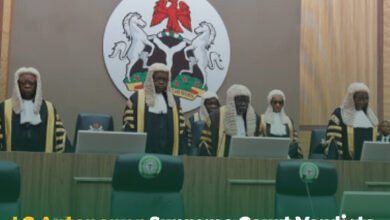
For decades, Nigerian governments have grappled with the challenge of unauthorized disclosure of sensitive government information.
This “perennial leakage,” as the Secretary to the Government of the Federation (SGF) phrased it, raises concerns about national security and public trust.
At a workshop organised by the Bureau of Public Service Reforms (BPSR) in collaboration with the Office of the Secretary to the Government of the Federation (OSGF) with the theme “Renewing Hope and Strengthening National Unity,” government’s renewed commitment to tackling this nutty issue was highlighted.
Senator George Akume, represented by Dr. Nnamdi Mbaeri, emphasized that such leaks are a felony with no basis in the constitution or the Freedom of Information Act
‘Struggle against the tide’
Analysts contend that leakages of such information often bring the government and the people on a collision course that can disrupt the country’s peace and stability. They asserted that every attempt aimed at addressing the act of sabotage has repeatedly suffered setbacks.
“Look around; there’s one person or a group wanting to undermine the government by creating a false impression in the minds of the people that the government is heading towards a different direction and destination, “ Bolaji Anifowose, a public commentator noted, “By simply creating a charged political climate capable of settling the country ablaze.” He added that leaking government information often dents the government’s image in addition to undermining its efforts.
While section 97 (2) of the Criminal Code Act of Nigeria explicitly states that “Any person who, being employed in the public service, without proper authority abstracts, or makes a copy of, any property of his employer, is guilty of a misdemeanor and is liable to imprisonment of one year,” analysts believe implementation and enforcement remains a concern.
Patrick Adaze, another public affairs analyst, added that various extant laws have addressed the problem but noted that people often breach the act partly because there’s no deterrence.
“When people know they can escape punishment or go Scot-free for sabotage, you are bound to have a situation where more and more people will go ahead regardless of the effect their actions will have on the polity.” He furthered that the vested interests of most civil servants working in the corridors of power often lead to such brazen acts, adding that scapegoats must be made to dance the music of their unpatriotic acts themselves. While the government has maintained a firm grip on confidential information, analysts believe purging the system of saboteurs will be extremely difficult to achieve.
They added that officials must not only be told of the consequences of their actions but be made to face the full extent of the law once they are caught.
Recent leak
In May 2024, a document titled Inflation Reduction and Price Stability (fiscal policy measures, etc) Order 2024 sparked heated debate. The document had disclosed measures taken by President Bola Tinubu to address the rising prices of essential commodities, but the special adviser to the President on Communication and strategy, Bayo Onanuga, quickly debunked the document, saying the presidency hadn’t authorize it. He added that the document’s appearance was the handiwork of fifth columnists.
Beyond jail terms
Beyond addressing the human element, there’s a need to improve information security protocols within government agencies. This could involve stricter access controls, data encryption, and employee training to identify and prevent leaks.
Analysts say while the government seeks to deter deliberate sabotage through stricter enforcement, it must also acknowledge the role of transparency, robust information security, and addressing the reasons why leaks happen in the first place.





